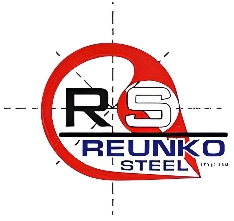Resin bolts are crucial in modern mining and construction, particularly in applications requiring robust roof support systems. These bolts, also known as resin anchor bolts or resin-grouted bolts, are used to secure the structural integrity of underground excavations, tunnels, and other civil engineering projects. Their growing popularity stems from their effectiveness in ensuring safety and stability. This article explores the pros and cons of resin bolts, offering a comprehensive understanding of their applications, benefits, and potential drawbacks.
Understanding Resin Bolts
Resin bolts consist of a steel rod inserted into a pre-drilled hole filled with resin grout. The resin acts as an adhesive, bonding the bolt to the surrounding rock or concrete. This method provides a solid anchoring mechanism that can support significant loads and enhance the structural integrity of the installation area.
Applications of Resin Bolts
Resin bolts are widely used in:
- Mining: To stabilise the roofs of underground mines and prevent rock falls.
- Tunnelling: To reinforce tunnel walls and ceilings, ensuring safe passage.
- Civil Engineering: In construction projects such as dams, bridges, and buildings to enhance structural support.
- Slope Stabilisation: To prevent landslides and rockslides in geologically unstable areas.
Pros of Resin Bolts
- Enhanced Load-Bearing Capacity: One of the primary advantages of resin bolts is their high load-bearing capacity. The resin grout provides a strong bond between the bolt and the surrounding material, distributing the load evenly and preventing point loads that could cause failure. This makes them particularly suitable for environments where high stresses are common.
- Versatility and Adaptability: Resin bolts can be used in various geological conditions, including soft and hard rock formations. The resin’s adaptability to conform to the borehole’s shape and irregularities ensures a secure bond regardless of the substrate. This versatility makes them ideal for multiple applications.
- Rapid Installation and Setting Time: The installation process for resin bolts is relatively quick and straightforward. The resin sets rapidly, allowing the bolts to quickly achieve their full load-bearing capacity. This is particularly advantageous in environments where time is critical, such as active mining operations.
- Improved Safety: By providing robust support, resin bolts significantly enhance the safety of underground and above-ground structures. They reduce the risk of roof collapses and rock falls, which can cause fatalities and injuries. This increased safety margin is crucial in high-risk environments like mining and tunnelling.
- Corrosion Resistance: Many resin bolts are designed to resist corrosion, especially those used in environments with high moisture or chemical exposure. This corrosion resistance extends the bolts‘ lifespan, reducing maintenance costs and ensuring long-term structural stability.
- Environmental Tolerance: Resin bolts can be used in various conditions, including wet, dry, and chemically aggressive environments. The resin acts as a sealant, protecting the bolt from environmental factors that could compromise its integrity.
Cons of Resin Bolts
Cost: One of the main disadvantages of resin bolts is their cost. The materials and installation process can be more expensive than other types of roof bolts, such as mechanical anchor bolts. This higher cost can be a limiting factor for projects with tight budgets.
Sensitivity to Installation Conditions: The effectiveness of resin bolts depends on proper installation. Factors such as hole cleanliness, moisture, and temperature can affect the bond between the resin and the surrounding material. If not properly managed, these variables can compromise the bolt’s performance.
Limited Reusability: Once installed, resin bolts are generally not reusable. The resin forms a permanent bond, making it difficult to remove the bolts without damaging the surrounding structure. This lack of reusability can lead to higher project costs, requiring frequent changes or adjustments.
Health and Safety Concerns: The chemicals used in resin grouts can pose health and safety risks during installation. Proper handling, ventilation, and personal protective equipment (PPE) are necessary to mitigate these risks. Inadequate safety measures can lead to exposure to harmful fumes and substances.
Curing Time and Conditions: Although resin typically sets quickly, the curing time can be influenced by environmental conditions such as temperature and humidity. Extreme conditions can slow down the curing process, potentially delaying project timelines.
Specialised Equipment and Training: Installing resin bolts requires specialised equipment and trained personnel. The need for skilled labour and specific tools can increase the overall cost and complexity of the installation process.
Contact Reunko Steel For Details
Contact one of our representatives today to learn more about our resin bolts.
